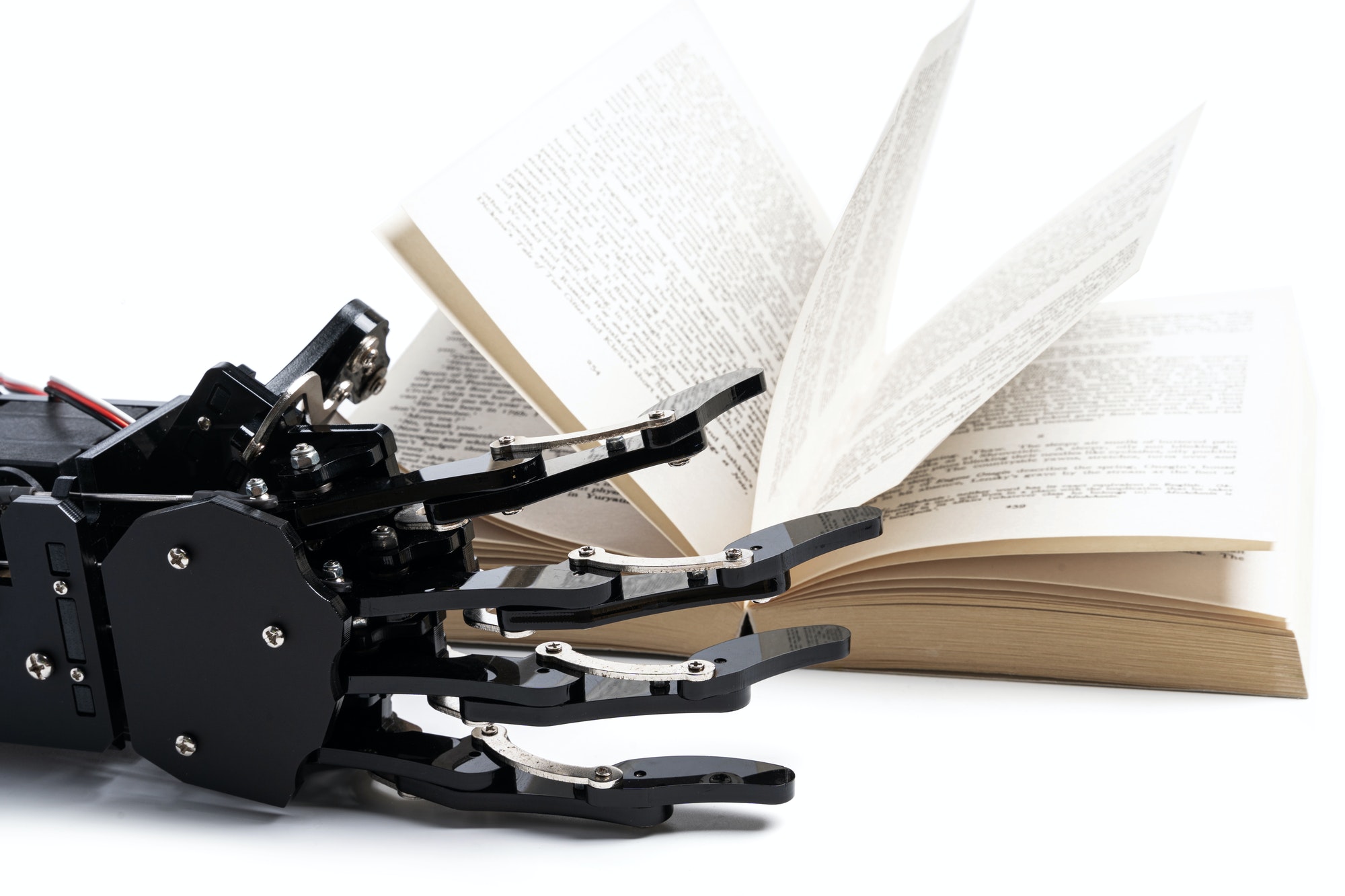Artificial Intelligence (AI) is changing education in cool ways, making learning more customized and fun. It’s not just a passing trend; it’s totally reshaping how we learn and how teachers teach.

Customized Learning with AI
Making Learning Fit You
AI is awesome at personalizing education. It means instead of one-size-fits-all teaching, you get lessons that fit your own pace and style. This is great because everyone learns differently, and AI helps make sure everyone gets the most out of their education.
Machine Learning: The Smart Assistant
Machine learning is part of AI that helps make this customization happen. It looks at how you learn and predicts what you need next. So, your lessons keep evolving as you do, always hitting the right level of challenge.
AI Doing the Boring Stuff
Saving Time for Teachers
AI is also super helpful in taking care of repetitive tasks. Think grading papers or setting up schedules. With AI handling these, teachers can spend more time actually teaching and helping students.
Cool Content with AI
AI is also used to make learning materials that are way more engaging than old-school textbooks. It can create interactive quizzes, simulations, and more, making learning a lot more fun and interactive.
Making Education Accessible to All
Education for Everyone
AI is breaking down barriers in education. It’s helping make learning resources available to everyone, including those with disabilities. Tools like real-time translation and AI assistance mean education isn’t limited to just a few; it’s for everyone.

AI Spotting Problems in Classrooms
Keeping Learning On Track
AI can also find out what’s not working well in classrooms. It identifies weak spots in teaching methods or where students are struggling. This feedback helps make education better and more responsive to everyone’s needs.
Closing Skills Gaps with AI
Stay Up-to-Date with Skills
AI is key in helping people keep their skills fresh, especially important in today’s fast-changing job market. It provides access to the latest training and resources, so everyone stays in the know.
Feedback That Makes Sense
AI Knows How You’re Doing
Feedback is crucial for learning, and AI gives really detailed, data-based feedback. This means you get a clearer picture of where you’re rocking it and where you need to put in more work.
AI Chatbots: 24/7 Study Buddies
Always There to Help
AI chatbots are like having a study buddy available anytime. They can answer questions and help you out whenever you need, making sure you can keep learning, even outside of class.
Safe and Secure Learning Online
AI and Blockchain Keeping It Safe
With more learning online, keeping your data safe is super important. AI, along with blockchain technology, makes sure your educational data is protected and kept private.
AI in Exams
Fair and Square Testing
AI is also getting into monitoring exams. It helps make sure everything is fair and above board, keeping the whole testing process honest and credible.
Real-World Examples of AI in Education
Check Out These Cool Platforms
Some real examples of AI in education include Google Classroom, which does automated grading, Duolingo’s personalized language lessons, and Coursera’s course recommendations. These show how AI is making learning more tailored and effective for everyone.

Frequently Asked Questions (FAQs) About AI in Education
Q1: What is AI in Education?
A1: AI in education refers to the use of Artificial Intelligence to create a more personalized, efficient, and engaging learning experience. It includes things like adapting lessons to individual learning styles, automating routine tasks, and providing interactive learning materials.
Q2: How does AI personalize learning?
A2: AI personalizes learning by analyzing your learning habits and performance. It then adjusts the material to fit your pace and style, making sure the lessons are just right for you.
Q3: Can AI replace teachers?
A3: No, AI is not meant to replace teachers. It’s there to help them by taking care of repetitive tasks and providing support in creating more engaging learning materials. Teachers are still crucial for guiding, motivating, and understanding students in ways AI can’t.
Q4: Is AI in education only for tech-savvy students?
A4: Not at all! AI tools in education are designed to be user-friendly. Whether you’re a tech pro or not, these tools are made to enhance everyone’s learning experience.
Q5: How does AI help with disabilities in education?
A5: AI provides tools like voice-to-text, real-time translation, and personalized learning programs, which can be really helpful for students with disabilities. These tools make learning more accessible and inclusive.
Q6: Are AI-powered educational tools expensive?
A6: It varies. Some AI tools and platforms can be pricey, but there are also many free or low-cost options available. The cost often depends on the complexity and features of the tool.
Q7: How does AI ensure fair testing?
A7: AI systems can monitor exams to detect any irregularities or cheating. They can also help in setting up unbiased and fair exams, ensuring everyone gets a fair shot.
Q8: Can AI help me choose what to study?
A8: Yes! AI can analyze your interests, strengths, and educational background to recommend courses and paths of study that might be a good fit for you.
Q9: Will AI in education make learning easier?
A9: AI can make learning more efficient and engaging, but that doesn’t necessarily mean it’s always easier. You still need to put in the effort, but AI can help make sure that effort is well-directed and effective.
Q10: How can I start using AI in my learning?
A10: Start by exploring AI tools available at your school or online. This can be anything from AI tutoring systems, language learning apps like Duolingo, or educational platforms like Coursera. Just dive in and see what works for you!
Sources Appinventiv


